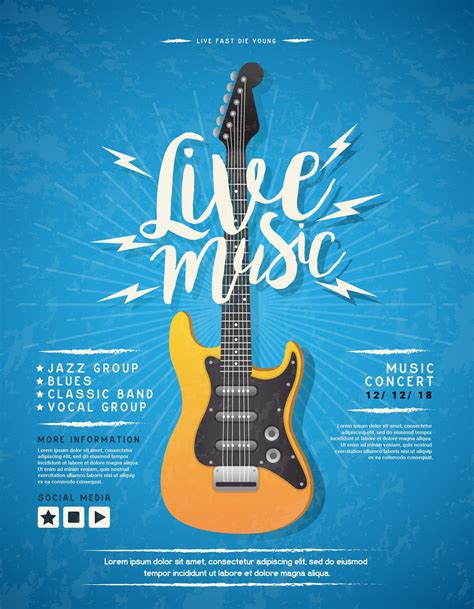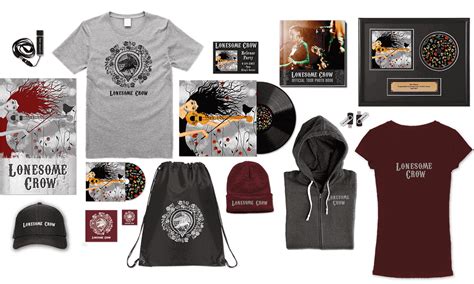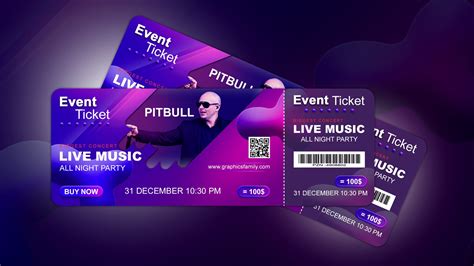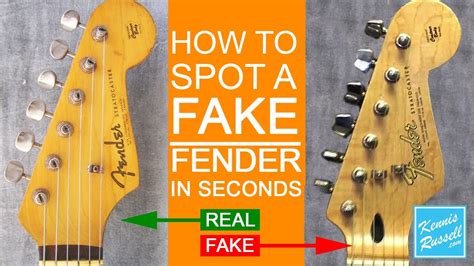How to Spot Fake Music Merchandise: A Comprehensive Guide
How Can I Tell If a T-Shirt Is Real or Fake?
The world of music merchandise is filled with exciting opportunities for fans to show their love for their favorite artists. But with the rise of counterfeit products, it’s crucial to know how to distinguish authentic merchandise from fakes. A fake t-shirt can be easily detected by paying attention to certain details. Here’s how to spot a fake:
Look at the Fabric and Print Quality
Authentic merchandise is typically made from high-quality materials, such as 100% cotton or a blend of cotton and polyester. The fabric should feel soft and durable, and the print should be crisp and sharp. Fake t-shirts often use lower-quality materials, resulting in a rough, thin fabric and blurry, faded prints. The fabric may even feel scratchy or rough. Pay close attention to the texture and feel of the fabric.
Inspect the Tags and Labels
Authentic merchandise often features specific tags and labels with the artist’s logo, brand name, and size information. Fake t-shirts may have misspellings, inconsistent font styles, or poorly printed labels. The tag should be sewn securely and have the correct size and other relevant details.
Check the Price
If the price of a t-shirt seems too good to be true, it probably is. Counterfeiters often sell their products at significantly lower prices than genuine merchandise. If a t-shirt is offered at a price that’s significantly less than what you would expect to pay for an authentic item, be wary.
If you’re unsure about the authenticity of a t-shirt, it’s always best to err on the side of caution and avoid purchasing it. Remember, buying fake merchandise not only deprives artists of their rightful royalties but also supports illegal activities.
What Are Some Signs of Fake Music Posters?
Music posters are a great way to decorate your space and show your love for your favorite bands. However, fake posters are becoming increasingly common, so it’s important to know how to spot them. Here are some signs to look out for:
Examine the Paper Quality
Authentic posters are typically printed on high-quality paper, which is thick and durable. Fake posters often use thin, flimsy paper that easily tears or wrinkles. The paper should have a smooth finish and a slight gloss, not a rough or matte texture. If the paper feels cheap or flimsy, it could be a sign of a fake poster.
Check the Colors and Printing
Authentic posters have vibrant, well-defined colors and sharp, clear printing. Fake posters often have faded, muddy colors, or blurry, pixelated printing. Look for any inconsistencies in the color scheme or printing, such as misaligned images or text. The colors should be vibrant and true to the original design.
Look for the Artist’s Signature
Some artists include their signature on their posters. If you’re unsure about the authenticity of a poster, look for a signature or other markings that might indicate its authenticity. Examine if the signature matches any known signatures of the artist.
If you’re still unsure about the authenticity of a poster, it’s best to reach out to the artist or their management team for confirmation. It’s better to err on the side of caution and avoid purchasing posters from unknown or unreliable sources.

What About Vinyl Records? How Do I Know If They Are Genuine?
Vinyl records have experienced a resurgence in popularity in recent years, making them a hot commodity for collectors and music lovers. However, the increased demand has also led to an increase in the number of counterfeit vinyl records on the market.
Check the Label and Printing
The labels on vinyl records provide valuable information about the artist, album, and release date. Authentic labels are typically printed using high-quality inks and are carefully aligned. Fake labels often have misspellings, blurry printing, or inconsistencies in the font styles.
Examine the Vinyl Disc
Authentic vinyl discs are made from high-quality vinyl, which has a smooth, glossy surface. Fake vinyl discs often have a rough, uneven surface or a dull, matte finish. Also, examine the grooves on the disc. They should be smooth and continuous without any scratches or irregularities.
Listen to the Sound Quality
One of the most reliable ways to determine if a vinyl record is genuine is to listen to its sound quality. Authentic vinyl records produce a clear, warm sound with minimal noise or distortion. Fake records often have a thin, distorted sound with excessive noise or skipping. If the sound quality is poor, it’s likely that the record is a counterfeit.
If you’re buying vinyl records online, be sure to check the seller’s feedback and ratings. If you’re buying from a physical store, ask the staff about the authenticity of the records they sell. Always be cautious when buying vintage vinyl records, as these are especially vulnerable to counterfeiting.
How Can I Identify Fake Concert Tickets?
Concert tickets are often highly sought-after items, and as a result, counterfeit tickets are a common problem. It’s essential to be aware of the signs of a fake ticket to avoid getting scammed and being turned away at the door.
Pay Attention to the Design and Printing
Authentic tickets are printed on high-quality paper with intricate designs and clear printing. Fake tickets often have blurry printing, misaligned text, or a noticeable difference in the paper quality.
Examine the Security Features
Most legitimate concert tickets include security features, such as holograms, watermarks, or unique barcodes. Fake tickets often lack these features or have poorly executed imitations. Check for these security features and make sure they’re not faded, blurred, or inconsistent.
Check the Venue’s Website
If you’re purchasing tickets online, always check the venue’s website for information about authorized ticket sellers. Legitimate ticket sellers will be listed on the venue’s website. If the seller is not listed, it’s likely that they’re selling counterfeit tickets. Avoid purchasing tickets from unauthorized sellers.
If you’re unsure about the authenticity of a ticket, it’s always best to contact the venue directly for confirmation. It’s always better to be safe than sorry and avoid purchasing tickets from unreliable sources.
What If the Website Looks Too Good to Be True?
It’s easy to get caught up in the excitement of finding great deals on music merchandise, but it’s important to be vigilant. A website that appears too good to be true often is. If a website is offering unbelievably low prices or discounts, it’s best to be cautious.
Check the Website’s Domain Name
A legitimate website will have a domain name that closely matches the artist’s name or the brand selling the merchandise. Look out for misspellings or odd domain extensions. A website with a generic or suspicious domain name could be a sign of a scam.
Look for Contact Information
A legitimate website should have readily available contact information, such as an email address, phone number, and physical address. If a website lacks this information, it’s a red flag. Avoid websites that lack any contact information.
Read Customer Reviews
Before making a purchase, always read customer reviews about the website. Genuine customer reviews can provide valuable insights into the website’s legitimacy. If a website has a large number of negative reviews, it’s best to avoid it.
If you’re unsure about the legitimacy of a website, it’s always a good idea to do some research. Look for information about the website on other online platforms or ask for recommendations from friends or family members. Always be cautious when shopping online and remember that if a deal seems too good to be true, it probably is.

What Are Some Red Flags When Buying Music Merch?
When purchasing music merchandise, it’s important to be aware of certain red flags that might indicate the product is fake. Here are some common red flags to watch out for:
Low Prices and Discounts
As mentioned earlier, if a price seems too low for a piece of merchandise, it could be a fake. Be cautious of deals that seem too good to be true, as they are often associated with counterfeit products.
Unprofessional Packaging
Authentic music merchandise is typically packaged professionally. If the packaging is poorly made, damaged, or doesn’t appear authentic, it’s a red flag. Look for packaging that is consistent with the artist’s branding or the brand selling the merchandise.
Misspellings and Errors
Pay close attention to the details. Check for misspellings, inconsistent fonts, or other errors on the merchandise. Authentic merchandise is carefully crafted and will not have obvious mistakes. If you see any errors, it’s a sign that the product may be fake.
By being aware of these red flags and taking precautions, you can increase your chances of buying authentic music merchandise and avoiding counterfeit products.
Can I Return Fake Merch?
Unfortunately, there is no guarantee that you will be able to return fake music merchandise. Most legitimate retailers have return policies that are clear and straightforward. However, if you purchase a fake product, it’s likely that the seller won’t accept a return or refund. The best course of action is to avoid purchasing from suspicious sellers in the first place. If you believe you have purchased fake merchandise, you can try contacting the retailer to see if they will accept a return or refund.
It is also important to remember that purchasing counterfeit products is illegal and supports criminal activities. Therefore, it is always best to purchase merchandise from reputable sources and support legitimate artists and brands.

How Can I Be Sure I’m Buying From a Legitimate Source?
Purchasing from legitimate sources is crucial to ensuring that you buy authentic music merchandise. Here are some tips for identifying trustworthy sellers:
Buy From Authorized Retailers
The best way to ensure you’re buying genuine merchandise is to purchase from authorized retailers. Check the artist’s website or the brand’s official website for a list of authorized retailers. Authorized retailers are licensed to sell the artist’s or brand’s merchandise and are generally more reliable.
Look for Reviews and Ratings
Read reviews and ratings from other customers before making a purchase. These reviews can give you insights into the seller’s reputation and the quality of their products. Look for sellers with positive reviews and a high rating.
Check the Website’s Security
When shopping online, make sure the website uses secure payment gateways. Look for a lock symbol in the address bar and a website address that starts with «https». This indicates that the website uses encryption to protect your personal and financial information.
Always be cautious when buying music merchandise, especially online. Do your research, check for red flags, and only purchase from trusted sources. By taking these precautions, you can ensure that you’re buying authentic merchandise and supporting legitimate artists and brands.
What Should I Do If I Suspect I’ve Bought Fake Merch?
If you suspect you’ve bought fake merchandise, it’s a good idea to contact the seller or retailer directly and explain your concerns. If the seller is legitimate, they may be willing to offer a refund or exchange. However, as mentioned earlier, counterfeiters are unlikely to cooperate. You may also consider reporting the seller to the relevant authorities.
Summary Table
| Merchandise Type | Authenticity Signs | Red Flags |
|---|---|---|
| T-Shirts | High-quality fabric, crisp print, authentic tags, fair price | Low-quality fabric, blurry print, misspellings on tags, unreasonably low price |
| Posters | Thick, durable paper, vibrant colors, sharp printing, artist signature | Thin, flimsy paper, faded colors, blurry printing, missing signature |
| Vinyl Records | High-quality vinyl, smooth surface, clear label, crisp sound quality | Rough surface, blurry label, thin sound quality, scratches on the disc |
| Concert Tickets | High-quality paper, intricate design, clear printing, security features | Low-quality paper, blurry printing, missing security features, suspicious seller |
| Online Purchases | Authorized retailer, positive reviews, secure website, clear contact information | Unusually low prices, unprofessional packaging, misspellings, lack of contact information |
FAQ
How can I report fake music merchandise?
You can report fake music merchandise to the relevant authorities, such as your local consumer protection agency or the police. If you purchased the merchandise online, you can also report the seller to the platform where you made the purchase.
What are the legal consequences of selling fake music merchandise?
Selling counterfeit music merchandise is a serious crime that can result in significant fines and even imprisonment. Counterfeiters are also subject to civil lawsuits by the artists and brands whose products they are imitating.
Is it always illegal to buy fake music merchandise?
No, it is not always illegal to buy fake music merchandise. However, it is unethical and supports illegal activities. It’s best to purchase authentic merchandise from legitimate sources.
Can I resell fake music merchandise?
No, reselling counterfeit music merchandise is illegal and can lead to legal consequences. If you have purchased fake merchandise, it’s best to discard it or dispose of it responsibly.
What are some ways to support legitimate artists?
You can support legitimate artists by purchasing authentic merchandise from authorized retailers, attending their concerts, streaming their music on legitimate platforms, and engaging with them on social media.
Is it difficult to spot fake merchandise?
It can be difficult to spot fake merchandise, especially for newcomers. Paying attention to detail, researching the artist, and purchasing from reputable sources can help avoid buying counterfeit products.
What are the benefits of buying genuine music merchandise?
Buying genuine music merchandise supports artists and brands, ensures you get a high-quality product, and helps prevent illegal activities.
